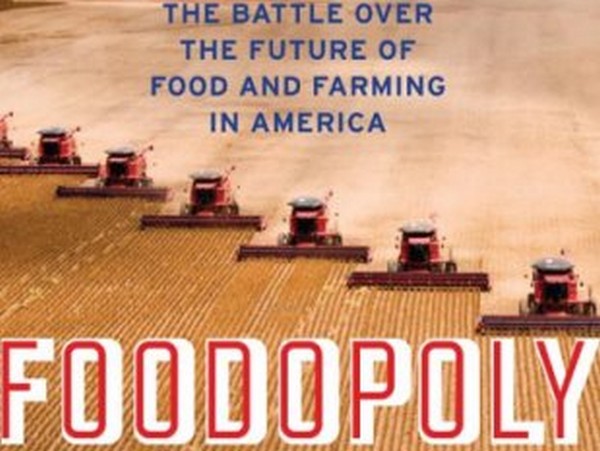America And Our Broken Food System, Can It Be Healed?

With this most unusual and divisive presidential election season heading into its final stretch, the candidates are narrowing their focus on swing states, including New Hampshire. But when they come courting voters, will they speak to issues that matter most to our families, our health, our economies and our well-being?
As a Dartmouth professor of sustainability science and a researcher who has delved deeply into some of the most pressing issues affecting our future, I believe that food is one of those topics.
Yes, food. Today’s food and farming system is complex and mixed up with many other issues of the day – immigration, climate change, resource depletion and water pollution, not to mention the obesity epidemic and its implications for health care spending and even military readiness. And yet food issues have been glaringly absent from the campaign trail.
By now, the candidates should be well aware that the United States has a broken food system. When I say “food system,” I mean the policies pertaining to how we grow food, how it winds up on our tables and all the steps in between.
A tangled web of ill-conceived federal policies explains a lot of the problems we see in this chain. It explains why junk foods are cheaper than fruits and vegetables (because corn and soy, key ingredients of processed foods, benefit from on-farm subsidies and taxpayer-funded research); why farmers increase planting of these crops even when prices are low (because crop insurance guarantees their income); and why some of the most food-insecure people in our country are ironically the very people who produce and prepare our food (because many farm and food service workers work in the shadows without a living wage).
As a scientist working at the nexus of food, energy and water issues, I have come to realize that we can’t solve problems like these in isolation. Taking a systems approach – looking at ecological, social and economic issues together as a whole – is much more effective.
For example, agriculture in the United States is succeeding at production, but its dominant methods are not sustainable. Nationally, industrialized agriculture produces large volumes of commodities, such as corn and milk, but also generates massive quantities of fertilizer runoff and animal waste, which pollute the air and water.
And here in New Hampshire, we have particular agricultural challenges, including the ongoing decline of small-scale dairy farms – the state agriculture commissioner announced last week that 19 of the state’s 120 dairies have closed this year – and the need to balance vibrant local food production with conservation of our forests.
At Dartmouth, in surrounding communities, and around the country, people are coming together to create solutions – involving farmers markets, local food sourcing on campuses and at hospitals, food hubs and pantries, community gardens, and other programs – to ensure that everyone has access to healthy, affordable food produced in ways that are good for the environment.
But local communities shouldn’t have to work so hard to undo the damage caused by the current system. We need a new national food plan, coordinated across all relevant federal agencies, aimed at promoting healthy and affordable food, environmental sustainability, and economic opportunity for all.
The next administration must lead to make this happen. And the public will support it, as large majorities of voters across the political spectrum have expressed support for change in our food system.
According to a poll conducted last fall by the Plate of the Union campaign – a partnership of the Union of Concerned Scientists, Food Policy Action and the HEAL Food Alliance – 81 percent of voters were very concerned that one-third of children today will develop diet-related diabetes. Seventy-five percent of voters across party lines also favor government incentives to encourage sustainable farming practices that protect the environment.
This fall, Plate of the Union is ramping up its effort to bring these issues to the attention of the candidates. The coalition is launching a food truck tour in New Hampshire and other battleground states, with the first stop at Stonyfield Farm in Londonderry on Sept. 8. This tour will bring together scientists like me with farmers, chefs, students and more to urge the presidential candidates to commit to establishing a national food policy.
Such a policy will be a large undertaking, and it will take time to reverse decades of dysfunctional federal programs. But there are clear steps the next administration could take in its first year in office, including ending subsidies that support processed junk food and re-aligning agricultural subsidies to match the federal government’s fruit and vegetable intake recommendations.
The next president needs to get in step with burgeoning public sentiment. The problems are clear and the opportunities many.
Will we act on them?
Source(s):
concordmonitor.com
alternet.org
http://www.healthfreedoms.org/america-and-our-broken-food-system-can-it-be-healed/